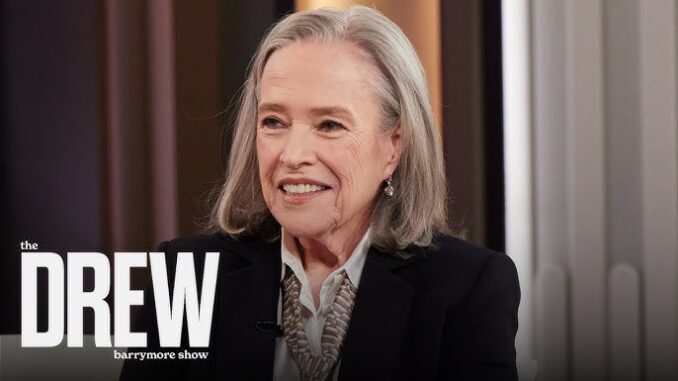
The Unbowed Spirit: When Matlock and Kathy Bates Tackle Ageism Head-On
Age, in many modern narratives, is often painted as a gentle decline, a softening of edges, or worse, a slide into irrelevance. Society, particularly in its more superficial corners, tends to fetishize youth, often dismissing the wisdom, resilience, and sheer vibrant energy that accumulate with years. Yet, in the cultural landscape, there emerge figures who not only defy this narrow perception but actively dismantle it, proving that age can be a formidable weapon, a wellspring of power, and a badge of honor. Imagine a courtroom where the folksy, seemingly doddering Ben Matlock squares off against the unflinching, indomitable presence of Kathy Bates – not as adversaries, but as dual champions, each in their unique way, tackling ageism head-on.
Ben Matlock, with his rumpled suits, folksy demeanor, and an inexplicable love for hot dogs, is the quintessential embodiment of underestimated wisdom. His opponents, sleek and self-assured, often mistook his Georgia drawl and seemingly antiquated methods for senility, a fatal error. They’d see an old man, perhaps past his prime, stumbling towards a closing argument, while Matlock, with the patience of a spider weaving a web, was meticulously unraveling their case thread by painstaking thread. His age wasn’t a handicap; it was a cloak. It allowed him to observe, to listen, to gather seemingly innocuous details that younger, flashier lawyers would dismiss. He proved that keen observation, meticulous research, and an understanding of human nature honed over decades could outwit any digital database or slick presentation. Matlock’s fight against ageism was quiet, subversive, and intellectually devastating, a testament to the power of accumulated experience against fleeting trends. He didn’t demand respect; he earned it by consistently delivering brilliance from an unassuming package.
Kathy Bates, on the other hand, charges into the fray with a different, more visceral kind of power. She doesn’t gently subvert expectations; she shatters them with a laugh, a glare, or a deeply felt performance that refuses to be categorized by chronological age. In an industry that often demands its female stars conform to increasingly youthful and unrealistic beauty standards, Bates has carved out a career playing women who are complex, powerful, often dangerous, and always intensely human, regardless of their age. From the terrifying devotion of Annie Wilkes in Misery to the defiant strength of Delores Claiborne, to the flamboyant cruelty of Madame LaLaurie in American Horror Story, Bates’s characters are never defined by fading beauty or lost youth. They are defined by their will, their conviction, their lived experiences etched onto their faces and into their souls.
Bates, through her work and her very presence, declares that a woman’s relevance, her magnetism, and her power do not diminish with time; they deepen and transform. She isn’t playing “old” women; she’s playing women, full stop, whose age is simply another facet of their rich, complex identities. Her refusal to fade into the background, to take on only grandmotherly roles, or to apologize for her authentic self, sends a resounding message: age can bring gravitas, unapologetic self-possession, and an unwavering gaze that youth often lacks. She embodies the notion that true strength is not about physical perfection but about an unyielding spirit and a profound understanding of life’s intricate dance.
Together, Matlock and Bates form a formidable, if imagined, tag team against the reductive forces of ageism. Matlock, the shrewd elder statesman, demonstrates that wisdom is a stealth weapon, that a lifetime of observation provides an unparalleled lens through which to view the world. He teaches us that sometimes, the slowest path is the most strategic, and that genuine intelligence doesn’t need to shout to be heard. Bates, the fearless matriarch, roars her defiance, proving that power and desirability are not ephemeral gifts of youth but can be cultivated, honed, and wielded with even greater force as one ages. She reminds us that the stories of older women are not secondary or diminished; they are epic, vital, and deserving of center stage.
In a world quick to dismiss, quick to stereotype, and quick to categorize, figures like Matlock and Kathy Bates serve as enduring beacons. They illustrate, with every calculated move and every powerful performance, that age is not an ending but a profound accumulation – of wisdom, of strength, of character. They champion the unbowed spirit, proving that when ageism rears its head, the most potent response is often the quiet brilliance of experience or the thunderous declaration of an unapologetically lived life. They don’t just tackle ageism head-on; they redefine what it means to grow old, transforming it from a perceived burden into an undeniable crown.
